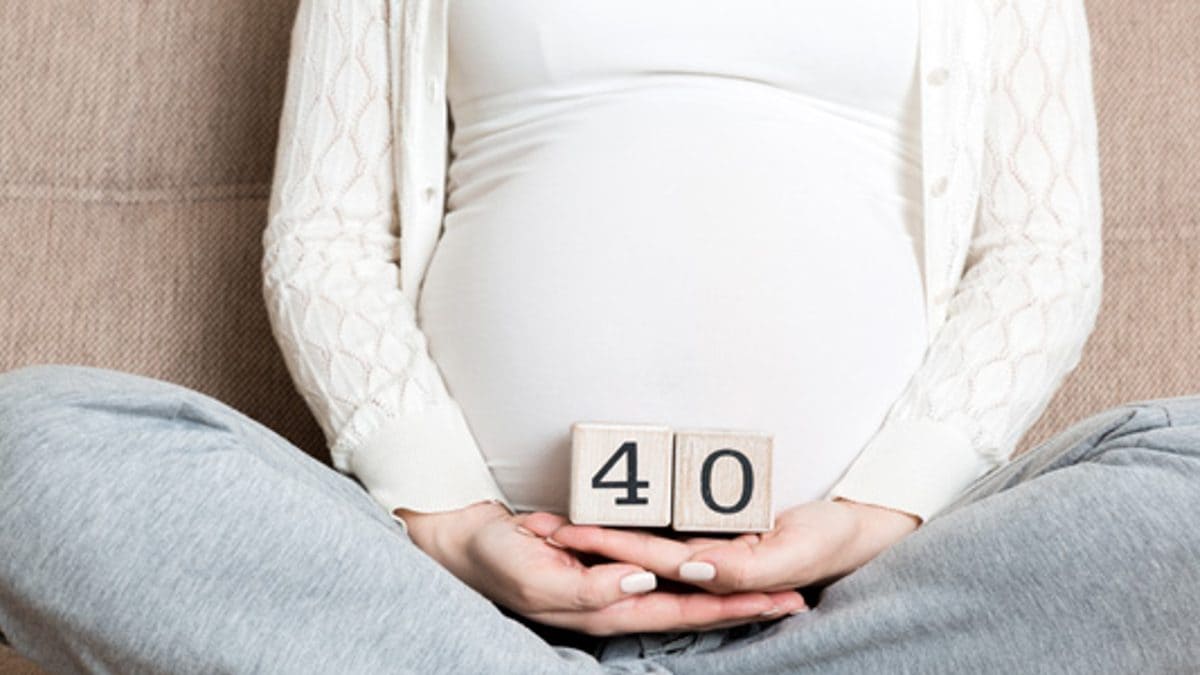Even if it is still possible to become pregnant safely after turning 40, it is important to comprehend the biological elements that may signal difficulties at this time.
Let’s look at the reasons why people have trouble getting pregnant after they are 40 and provide some useful tips for maintaining healthy fertility
There has been a noticeable shift in societal dynamics as more women are choosing to get pregnant after turning 40. The extraordinary advancements in women’s freedom and equality in most developed countries are responsible for this emerging trend. These advancements have allowed women to focus on their careers, follow their passions, and achieve their goals before feeling the pressure to have children in their early 20s. Dr. Anu Sadashiv, a specialist in reproductive medicine at the Milann Fertility and Birthing Hospital in KumaraPark, Bangalore, explains the biological factors that may pose challenges for women who are 40 years old and trying to conceive.
Although it is still possible to have a safe pregnancy after the age of 40, it is important to understand the biological factors that can indicate difficulties at this stage. These include hormonal imbalances, irregular menstrual cycles, and a natural decline in fertility due to a decrease in egg quantity and quality, an increased risk of chromosomal abnormalities, and other variables related to diminishing egg quantity and quality. According to the Centres for Disease Control and Prevention (CDC), 30% of women between the ages of 40 and 44 experience infertility.
WHY IS IT DIFFICULT TO CONCEIVE AFTER THE AGE OF 40?
- Age-related Fertility decline:
As women age, their fertility naturally declines due to a decrease in the number of fertile eggs. Women are born with a limited amount of eggs, and as they approach menopause, their egg supply drastically decreases, making it harder for them to conceive. - Diminished Ovarian Reserve:
One of the major factors contributing to lower fertility after age 40 is the shrinking ovarian reserve. This refers to the fewer eggs that are still present in a woman’s ovaries. Since women have a limited number of eggs at birth, their quantity and quality decrease with age. By the time a woman is in her forties, fewer surviving eggs, which are more likely to have chromosomal defects, are produced. - Age-Related Increase in Chromosomal Abnormalities:
As women age, the likelihood of chromosomal abnormalities in eggs increases. The most well-known chromosomal abnormality, Down syndrome, is caused by an extra copy of chromosome 21. The risk of getting pregnant and giving birth to a child with Down syndrome or another chromosomal anomaly noticeably increases after the age of 35 and continues to increase over time. This is one of the challenges of trying to conceive after the age of 40.
3 TIPS FOR MAINTAINING HEALTHY FERTILITY
- Managing Stress Levels:
High levels of stress can impact fertility. Finding healthy ways to reduce stress, such as practicing mindfulness, regular exercise, pursuing hobbies, and seeking support from loved ones, can create an environment that is more conducive to conception. - Consider using assisted reproductive technologies:
Couples facing difficulties in getting pregnant after the age of 40 may be recommended to use assisted reproductive technologies (ART), such as in vitro fertilisation (IVF). These techniques involve fertilising eggs outside the body and transferring the resulting embryos into the uterus, bypassing some of the challenges caused by age-related fertility decline. - Seeking Professional Assistance:
Women should prioritize their reproductive health and carefully explore fertility options. Consulting with medical experts, such as fertility doctors, can provide valuable information and personalized advice. They can offer various therapies and interventions tailored to individual needs, improving the chances of successful conception.
Due to age-related fertility decline, diminished ovarian reserve, and an increased risk of chromosomal abnormalities, getting pregnant after 40 can be more challenging. However, women who want to conceive after turning 40 should not lose hope. By understanding the factors that affect fertility and implementing certain strategies, it is still possible to increase the likelihood of becoming pregnant. Managing stress, considering assisted reproductive technologies, and seeking professional guidance can all contribute to a healthy pregnancy.
Denial of responsibility! SamacharCentrl is an automatic aggregator of Global media. In each content, the hyperlink to the primary source is specified. All trademarks belong to their rightful owners, and all materials to their authors. For any complaint, please reach us at – [email protected]. We will take necessary action within 24 hours.

Hemalata Nehete celebrates the art of living well, exploring topics ranging from travel and fashion to home decor and culinary delights, offering inspiration for readers seeking a balanced and enjoyable lifestyle.



